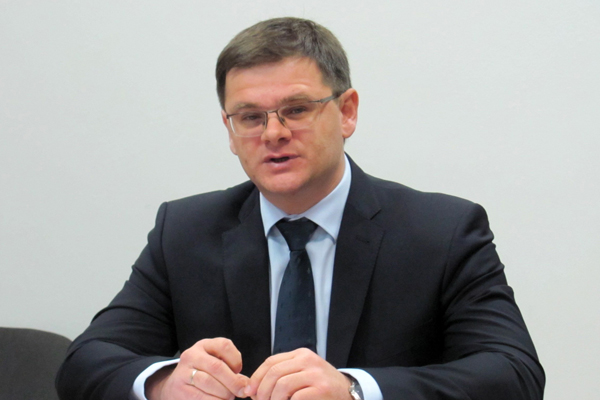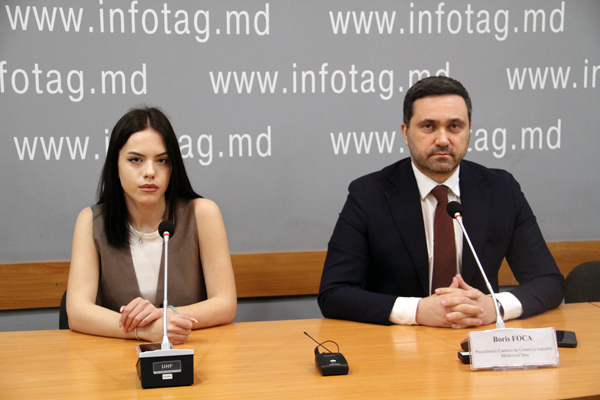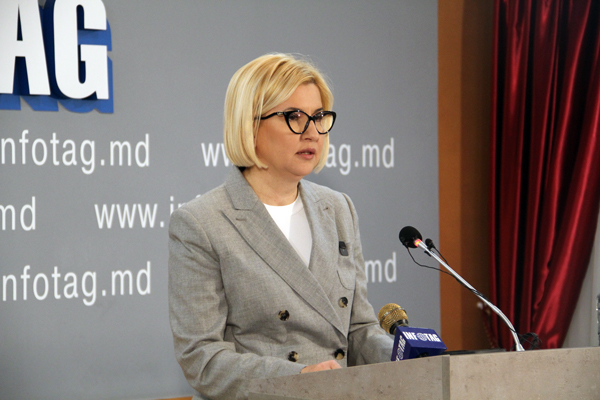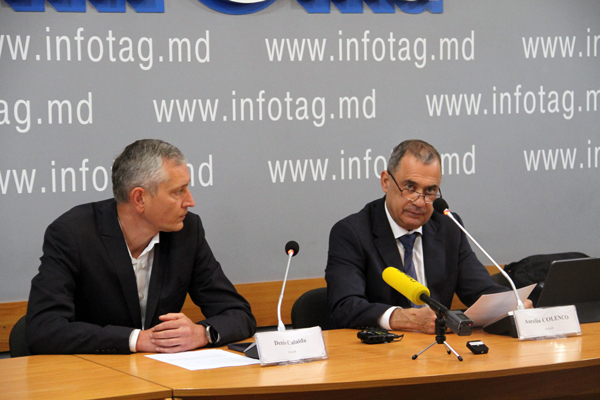Interview
MORE ACTIVE PROCESS OF MOLDOVA'S WITHDRAWAL FROM CIS, MORE ELUSIVE ARE CHANCES FOR CONTINUATION OF OSCE MISSION IN MOLDOVA

(Interview with "INFOTAG" news agency by Anatoly Dirun - political analyst, candidate of political sciences, ex-deputy of the Supreme Council of Transnistria)
"I". In mid-2022, there was a real threat of the OSCE Mission to Moldova being terminated because of Russia's position. In June, the mission's mandate was extended for six months, but the possibility of the Mission's termination remains. Why did this situation arise? What is the position of Russia, which has set a fundamental condition for the resumption of negotiations in the "5+2" format?
A.D. The OSCE Mission fit very logically into the negotiation process. In general, the work it has been doing as a mediator since 1993 deserves the highest praise. And now the question arises why now, 30 years later, this question (about the logicality of retaining the mission) has arisen.
It should be noted here that in the early 1990s Russia was interested in the success of the CIS project, where it played a significant role. And, accordingly, it was interested in Moldova's participation in this formation. Very little attention is paid to the aspect of interrelation between the Commonwealth of Independent States (CIS) formation and the dynamics of the Transnistrian conflict settlement. And these undisclosed aspects are now "popping up".
Moldova is actively withdrawing from the CIS, while Russia claims that the OSCE mission is ineffective. And we can conclude that the more active the process of Moldova's withdrawal from the Commonwealth, the more elusive will be the chances for the continuation of the OSCE Mission in Moldova. Moldova's presence in the CIS and the presence of the Mission in the negotiation process were two such counterbalancing factors balanced by each other. And Chisinau's withdrawal from the CIS will lead to the weakening of the OSCE Mission to Moldova.
In international relations, the principle of balancing interests is extremely important. And if part of Russia's interests in the region is reflected in Moldova's membership, albeit formal, in the CIS, then the Russians will insist on it.
If this denunciation and revision of the treaties were realized, say, in 2012-2013, i.e., during the peaceful period, and were realized on the basis of their effectiveness - it would be one conversation. But today it is clear that the basis for denunciation is not their effectiveness, but the informational component of the events in Ukraine, which form the structure of European security: will there be a sanitary cordon in this region, of which Moldova will become a part, and then any interaction with Russia is inadmissible? Or will there be a conditional border crossing between the European Union and Russia?
Realizing the root cause of the withdrawal from these agreements, Russia has dealt such an asymmetrical blow to the OSCE.
The Russians' question to the OSCE is: if you, as a mediator, cannot launch the negotiation process, then why do you need such a mediator? The question, from a rational point of view, is correct. After all, the “5+2” format is not coming together. But everyone understands why - the two guarantor countries are at war. And Russia cannot fail to understand this: the OSCE in these conditions is unlikely to be able to organize a meeting of all the parties to the "5+2". And this "fiddling" will continue until the contours of the stop line (of the war in Ukraine) become clear.
"I". What are the prospects for the preservation of the Mission in Moldova in the future?
A.D. Perhaps the same story will happen with the extension of the mandate of the OSCE mission as with the "grain deal". The mission will be extended, say, for six months, with some new conditions for Russia, aimed, for example, at avoiding the blockage of Transnistria.
The extent to which the mission's mandate will be extended (from December 2022) - by six months, a year or not - will depend on many factors. But one of them is Moldova's activation on the CIS exit track.
The extent to which the mission's mandate will be extended (from December 2022) - by six months, a year or not - will depend on many factors. But one of them is Moldova's activation on the track of withdrawal from the CIS.
The main factor, of course, will be the situation in Ukraine. Either the conflict will be frozen or the front will remain dynamic. It should be taken into account that the conflict in Ukraine will reformat not only the format of "5+2" negotiations, but also the whole landscape of regional security. And no one knows how the fighting in Ukraine will end. If the conjuncture in Ukraine changes, Transnistria may find itself in even more uncomfortable conditions. And the third factor is the "1+1" negotiations and their dynamics. I think that the next six months will clarify the situation in all three directions.
"I": The resolution on the results of the NATO Summit on July 11-12 contains a call for the withdrawal of Russian troops from the territory of the Republic of Moldova. Is it more of a symbolic gesture or is there a practical component?
A.D. Moldova's place in the future regional security structure has not been determined yet. But today the binary system of defending NATO-Russia interests is in motion. No one knows the results yet, but everyone realizes that sooner or later it will be necessary to come to an agreement. And, the summit statement fits perfectly into the picture where Moldova is part of the anti-Russian bloc, the structure that should give a shoulder to Ukraine.
But such a picture is impossible without resolving two issues: firstly, the status of neutrality, and secondly, the presence here of peacekeeping forces and the Operational Group of Russian troops. That is why there is a quite logical position on the need to withdraw the troops.
The statement is both symbolic and practical in nature. Symbolic: for the first time NATO supported the withdrawal of Russian troops. Practical: under these conditions, Moldova will have to move further and further away from the status of its neutrality. That is, declaratively the status will still remain in the Constitution, but in fact there may be nothing left of neutrality.
























Add Comment